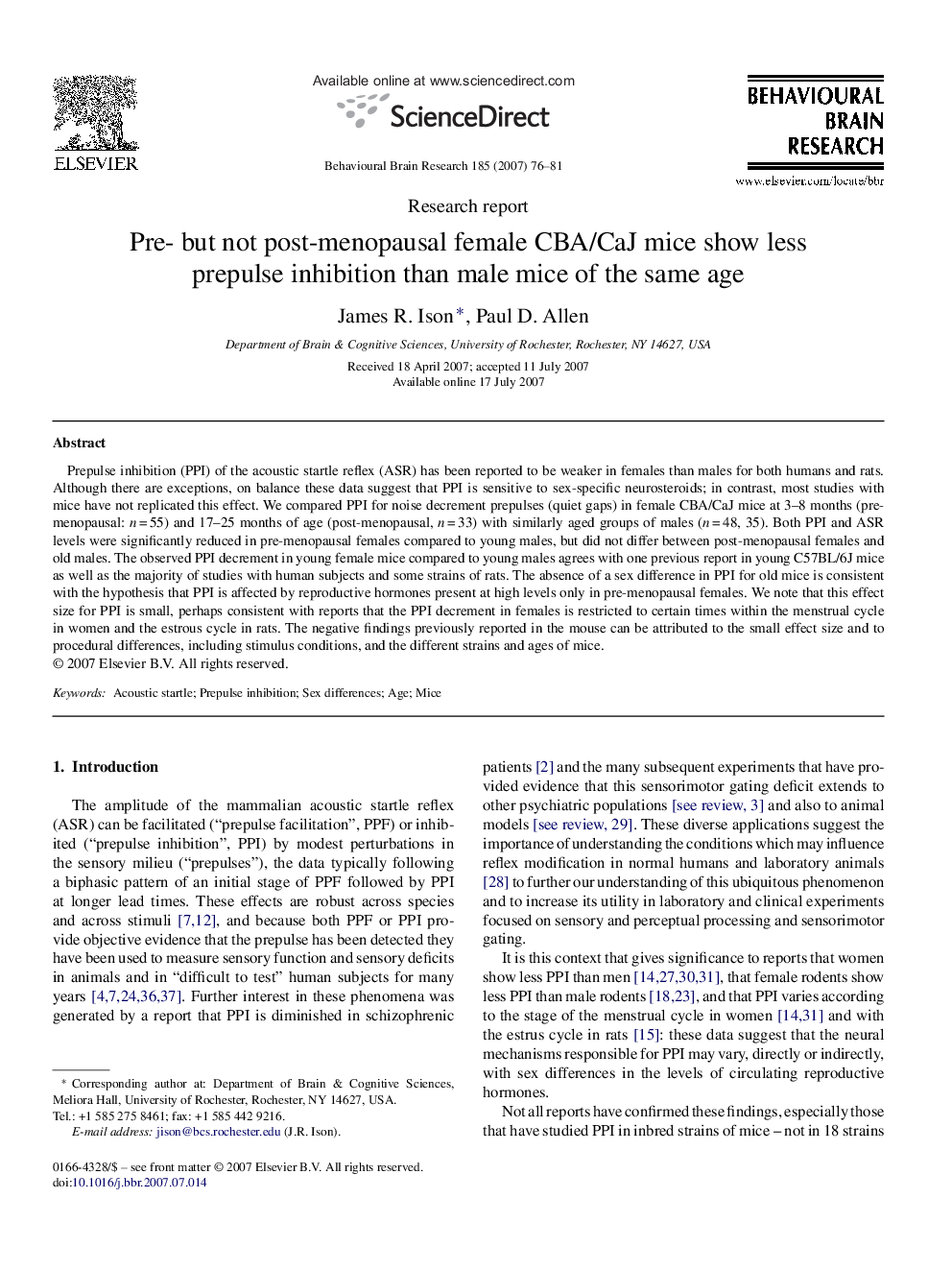| Article ID | Journal | Published Year | Pages | File Type |
|---|---|---|---|---|
| 4315566 | Behavioural Brain Research | 2007 | 6 Pages |
Prepulse inhibition (PPI) of the acoustic startle reflex (ASR) has been reported to be weaker in females than males for both humans and rats. Although there are exceptions, on balance these data suggest that PPI is sensitive to sex-specific neurosteroids; in contrast, most studies with mice have not replicated this effect. We compared PPI for noise decrement prepulses (quiet gaps) in female CBA/CaJ mice at 3–8 months (pre-menopausal: n = 55) and 17–25 months of age (post-menopausal, n = 33) with similarly aged groups of males (n = 48, 35). Both PPI and ASR levels were significantly reduced in pre-menopausal females compared to young males, but did not differ between post-menopausal females and old males. The observed PPI decrement in young female mice compared to young males agrees with one previous report in young C57BL/6J mice as well as the majority of studies with human subjects and some strains of rats. The absence of a sex difference in PPI for old mice is consistent with the hypothesis that PPI is affected by reproductive hormones present at high levels only in pre-menopausal females. We note that this effect size for PPI is small, perhaps consistent with reports that the PPI decrement in females is restricted to certain times within the menstrual cycle in women and the estrous cycle in rats. The negative findings previously reported in the mouse can be attributed to the small effect size and to procedural differences, including stimulus conditions, and the different strains and ages of mice.
